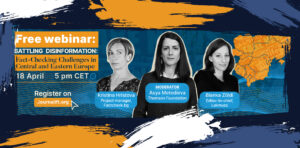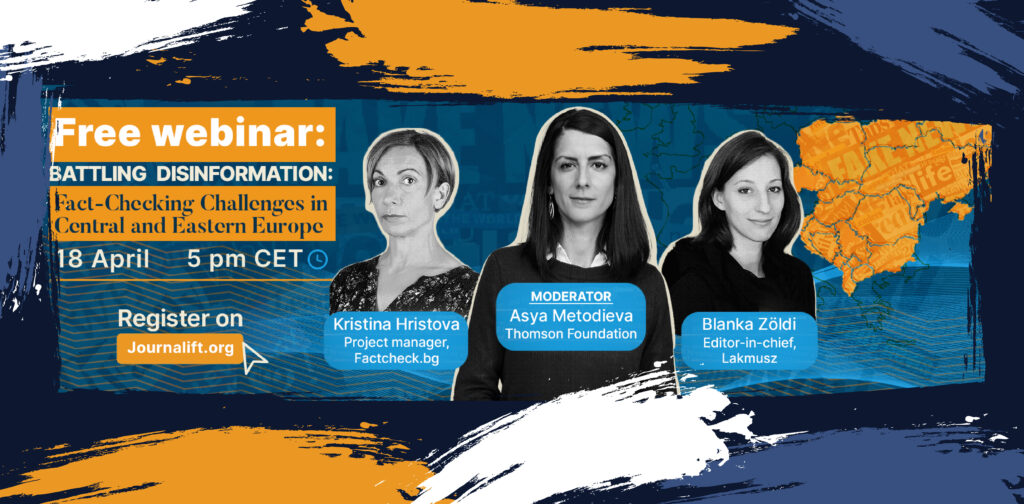Unaware of how many children and adolescents suffer from different kinds of mental health problems, some Western Balkans countries’ health care systems lack sufficiently specialised and quality care for youngsters – crucial for treatment in the early years. With undetermined and untreated conditions, youngsters are left to seeking alternatives, being that they can afford them, far from state hospitals.
Doubting the quality of care in public health institutions in Montenegro, now 18-year-old Ana recounts how her struggle started years ago.
“I noticed the first symptoms when I was eight or nine. I was constantly sad and nervous, more than usual for that age. At the age of 13, things got more serious, I started to show clear symptoms of depression and anxiety, but I didn't even think to seek help. When I started high-school, I tried not to think about my mental problems, but, of course, it’s unavoidable. Depression was only getting worse. At the age of 16, I started consuming alcohol, and not long after that, I started to physically injure myself, as well as to have visual and sound hallucinations. At 18, I decided to go to a psychiatrist privately and I was diagnosed with borderline personality disorder and schizophrenia,” she said.
Fearing stigma around mental health issues in Montenegro, after the diagnosis she tried to hide the problem from her surroundings, including her mother. As she could not pay for her medication and treatment, she recalls eventually telling her everything. After realising that a modest alimony of Ana’s father could not cover the bills, this high-school student found a job that would enable her to pay for the sessions and the medication. Explaining how she did not want to use the public health care services due to mistrust in the protection of data about her case, she said she feared the news of her diagnosis would quickly spread and jeopardise her chances for employment in a small conservative town she lives in.
For the 22-year-old Erisa from Albania, a similar struggle started when she was at the beginning of her studies in a university. She realised there was a feeling that closed her in and that could not be explained. It was not a physical pain, she recalled, but a feeling of loneliness and isolation.
“I was very aware that the things I was going through were not normal or healthy, but I could not find a solution. I have accepted the fact that I suffer from mental health problems even though this often makes me feel victimised. It has been three years since the onset of serious signs of depression and anxiety,” said the now fifth-year medical student in Tirana.
Just like Ana, Erisa decided to seek help with a private psychologist, whom she paid from her limited student budget. For now, she tries to manage this financial task, as long as her parents do not know she is receiving such treatment.
“My parents are not aware of my mental health problems and I have to manage the monthly budget myself. In general, it is very expensive to go to a psychologist, because you have to do sessions at least 3-4 times a month when you need to, and it goes too far,” she noted adding that she is keeping everything from her family because of their limited financial situation but also because she is concerned about them not properly understanding her problem.
Patients suffer in silence
According to the World Health Organization (WHO), 3-12 percent of young people have a serious mental disorder. The fact that almost half of all mental illnesses occur by the age of 14, and three quarters by the mid-twenties, shows the importance of timely treatment.
Depression, anxiety, and behavioural disorders are among the leading causes of illness and disability among adolescents, WHO states, while the consequences of failing to address adolescent mental health conditions extend to adulthood, impairing both physical and mental health and limiting opportunities to lead fulfilling lives as adults.
Currently in Montenegro there are no estimates of how many young people suffer from mental disorders. The general lack of research in the field of mental health is exactly one of the problems that the “National Strategy for the Protection and Improvement of Mental Health for the period from 2019 to 2023” warns of. Many patients suffer in silence and in secret since the earliest years as there is no specialised institution that deals with the treatment of mental disorders in children.
The same goes for Albania where there are no official public data on how many young people suffer from mental health. “The Action plan for the development of mental health services in Albania” from 2013, does not state such information either. The Albanian Ministry of Health did not respond to a request asking about this matter. For now, there is one psychiatric service for children and teenagers ”Child and Adolescent Psychiatry Service” at the Mother Teresa Health Centre in Tirana, which provides psychiatric services for children and adolescents for a wide range of psychiatric diagnoses and for an age range of 2 to 20 years.
According to the clinical psychologist and lecturer at the University of Tirana, Sulltana Aliaj, the factors that provoke psychological distress in young people can be different, coming from a family environment or community where a young person grew up and developed, in most cases characterised by the high presence of physical, psychological, emotional, but also sexual abuse.
“Ill-treatment, neglect and forms of abuse are factors that contribute to the development of anxiety disorders, depression, post-traumatic stress disorder, or personality disorders,” explained this psychologist adding that these problems become more visible during adolescence.
“Mental health problems can start early in life, influenced by situations that children face, but tend to become more apparent during adolescence. Factors that contribute to this picture are related to adolescents’ need for autonomy, pressures to be part of social groups, the need to feel accepted, and valued,” she argued.
Weak health care systems
Now 28-year-old Marko from Montenegro received a psychiatric diagnosis eight years ago. He was prescribed medication, but a psychiatrist strongly recommended psychotherapy as well.
“However, a psychologist at the centre for mental health in my city explained to me that he could not help me, because health care does not cover the psychotherapeutic services I need. Since then, I have spent all my money on psychotherapy. The right treatment saved me, but due to the high cost of the sessions, I don’t know when I will be able to afford to become independent or meet anything more than basic needs,” says this young man who still lives in the family apartment where he grew up.
Public health, except pharmacotherapy, offers almost no other forms of treatment. The “National Strategy” states that pharmacotherapy is not accompanied by “adequate improvement of the skills of employees in the field of psychotherapy, socio-therapy, and occupational therapy.” The Clinical Centre of Montenegro (KCCG) claims that the supportive psychotherapeutic form of treatment is used in daily work with patients in the Clinic for Psychiatry.
“During the previous year we also launched a line for psychological support, another service that came to life exclusively on the initiative of individuals and is entirely of a voluntary nature. Given the limited resources and capacities, we give more than our work engagement envisages, in order to provide citizens with adequate support and treatment,” the Public relations office of the KCCG said.
However, unlike various psychotherapy types like psychoanalysis or transactional analysis, supportive therapy is also called superficial and it is aimed to comfort a patient by the immediately available means. According to the American Psychological Association, this type of psychotherapy is “frequently applied to individuals with relatively minor or limited problems, as well as to fragile or hospitalised patients, as a means of maintaining morale and preventing deterioration.”
The Strategy document also noted there is not enough staff specialised in the field of child psychiatry in Montenegro. In mental health centres, mental health care and treatment services are available for children aged 15 and older, which are provided by specialists in adult psychiatry. In terms of quality and range of services, the Strategy concluded there are no specialists for children in these services. The KCCG explained in a written statement that since July this year, they have two psychiatrists specialised in working with children and adolescents and they plan to hire another one next year.
Within the KCCG Institute for Childhood Diseases, there is a Development Counselling Centre where young people up to the age of 18 can get the services of a psychologist, special educator, social worker, as well as a psychiatrist who practices only once a week, and is not a child psychiatry specialist. Young people over the age of 18 report to the outpatient service of the KCCG Psychiatric Clinic, where, however, all psychiatrists are specialists in adult psychiatry.
In Albania, there are a number of psychological and psychotherapeutic services provided by state and private institutions. There are four psychiatric services in Albania. In order to use them, psycho-social commissions were set up in several regions and to pass these commissions, one must first obtain a recommendation from a family doctor. In the hospitals, there is a service of psychologists, but it is not enough. Media have reported earlier that the number of psychologists in health centres is small compared to the size of population covered by a clinic or health care centre. However, the Ministry of Health did not respond to questions for this story.

Costly sessions
Thirty-year-old Marija, who was prescribed antidepressants and anxiolytics by the private practice psychiatrist, due to her lack of trust in public healthcare, managed to become functional again only with the help of psychotherapy that she had to additionally pay for.
“It was really expensive for me to pay 30 euro a week. I decided to stop, but my psychotherapist let me owe her some money just to continue – she considered regularity to be detrimental. She never asked me to pay her back the debt that continued to grow, but I started feeling shameful, so I won’t go until I am able to pay off the debt,” she said.
Sessions in Kosovo vary in similar amounts. According to 21-year-old Agon, “private sessions can cost 20-30-45 euros. It depends on the person, the form in which they will conduct the session, and it depends on what kind of psychologist he or she is. As for the public services, I know you can ask for a psychologist for free.”
Anxiety for this sociology student started when he was in high school but at the time, he was not able to explain what was happening to him. It was only later when he was reading about his symptoms that he became aware.
“It was a very unpleasant phase for me, even though I did not know that it really was a period of depression. I still remember that it was a very unpleasant and very painful phase. I did not talk to many people because I thought it was something that people do not talk about,” concluded Agon, who said he would prefer to go to a session with a private therapist since he has the perception that psychologists who provide services in public institutions and for free are not very committed to the profession.
The availability of treatment in public healthcare is quite deficient compared to the real demand in Montenegro. While some European countries’ health care insurances cover long-term free psychotherapy in private practices, as well as in the public health institutions, that option will remain impossible to implement in this Balkan country, as long as there’s no Psychotherapy Law and Montenegrin Chamber of Psychologists. The lack of a psychotherapy law allows not to distinguish between the professions of psychologist, psychotherapist, and psychiatrist.
Young people need support from their families and surrounding who are caring and interested to timely recognize problems, noted Radoje Cerovic, Podgorica-based clinical psychologist and psychotherapist.
“Psychotherapy, that is – a type of healing conversation, along with pharmacotherapy, is highly recommended by all the relevant mental health institutions and organisations as the basic treatment for mental illness,” he argued.
“There are many people who improvise psychotherapy, and psychiatrists are among these. Being a psychiatrist doesn’t give them the right to practice psychotherapy, because for that, they need to finish not so simple training in some psychotherapy fields of study that usually lasts for years,” warned Cerovic emphasising that as long as there is no law or chamber, most of the measures will prove to be inefficient.
In legal terms, Albania has drafted a law on mental health with the aim of protecting, preventing, and improving the lives of people with mental health disorders. In the education system in recent years, the number of psychologists has been increasing, however, it is still insufficient. This is due to the fact that one psychologist serves two to three schools.
Seeking a better and more private service, young people in Albania tend to turn to private psychological services as well. One of the reasons is that they do not want to show up at the hospital or health care centre as they know people around and are in contact with people they know and would not want to share their problems with others. Secondly, they say that psychologists working in the public services do not do their job professionally, so there is a kind of distrust in their work, pushing young people to go to private services. A session with a psychologist costs 2000-3000 Albanian Lek (15-25 euro), while according to experts, to understand and treat a problem requires at least 10 sessions.
Free alternative solutions
At the age of 16, Eleni from Elbasan, who is now 20, experienced anxiety, emptiness, sadness, and depression. These feelings pushed her to close in on herself despite seeking help. After eight sessions with a psychologist, she realised that she was suffering from borderline personality disorders. Despite the need to continue the sessions, she was forced to stop going because she could not cover it.
“After I was diagnosed with a borderline personality disorder, I was forced to leave the sessions, which would have helped me improve my condition because my family was not in a good financial situation to continue the sessions,” said this student.
Erisa added that each session cost her about 2500 Lek (20 euro) in Tirana with another 1000 Leke for medications (eight euro). She is aware of free alternative options online but said that for her, it is not effective as she needs “a closer contact.”
For Ana, the free alternative works well. She got in touch with a non-governmental organisation that helps young people with mental illness, the Prima NGO in Podgorica, for which she said it allowed her to use the free services of a psychologist once a week.
“You are not alone” (Nukjevetem) supports hundreds of young people online every day in terms of mental health. Through an online platform, dozens of psychologists offer their free services to any young person who needs it in Albania and Kosovo or young people elsewhere who speak the language. Initially launched as an initiative in Kosovo in 2010, since 2016, this platform also works in Albania. These platforms are the only ones which, unlike state institutions, have information and data regarding the number of young people receiving services.
Vera Remskar, head of the “Together Albania” Foundation, which manages the “Nukjevetem.al” platform, said that this platform is a doorway for young people suffering from mental health.
“It is counselling, which in the first place is professional, in the second place it is free, which is very important for these countries in a very difficult economic state, and it is also anonymous,” said Remskar, adding that 37 experts offer services on this platform.
From the beginning of this year, 950 young people received services through questions, while about 1,400 young people received services through chat.
Agon from Kosovo is a young person who received psychological services through free sessions offered by the community organisation, of which he is a member.
“As an LGBT person, I received psychological sessions for free because the LGBT organisation in Kosovo has a programme through which free services are provided to these people,” he said.
Like Remskar, and the LGBT organisation, Arjeta Mysliu, through her centre “Ri-Jeta” provides free psychological services in Kosovo. As a clinical psychologist and nurse, she established the “Re-Life” Centre in the Kosovo town of Ferizaj, providing assistance to all drug users and their families. Arguing how mental health continues to be a taboo in Kosovo, Mysliu said there is a need to promote the provision of services in this regard by young people.
Unlike Albania, Kosovo developed an action plan for mental health during and after the pandemic, in order to prioritise social policies. According to experts, the policies undertaken by the institutions should be oriented towards awareness.
“I personally think that the least that the government can do is raise awareness. Awareness is something that is not expensive and is key. The second is prevention,” said Remskar.
According to Bojana Obradović, the founder of the free psychotherapy network “Let’s talk about it,” in Serbia, drugs are often prescribed when there is no need, or, when there is a need for combination of the therapy and drugs, there is only medication available. She came up with the idea to realise the project “Let's Talk About It,” which is voluntary, but it has the support of local institutions that provide free space for lectures.
Mental health disorders and disease risk is accelerated by poverty, unemployment, inadequate and poor housing, working, and education conditions. Same goes for stress, genetics, diet, as well as exposure to harmful environmental influences - all of which there is plenty of in the countries of the Western Balkans.
By: An Djurdja Radulovic & Andrea Jelic in Podgorica and Erisa Kryeziu in Tirana































